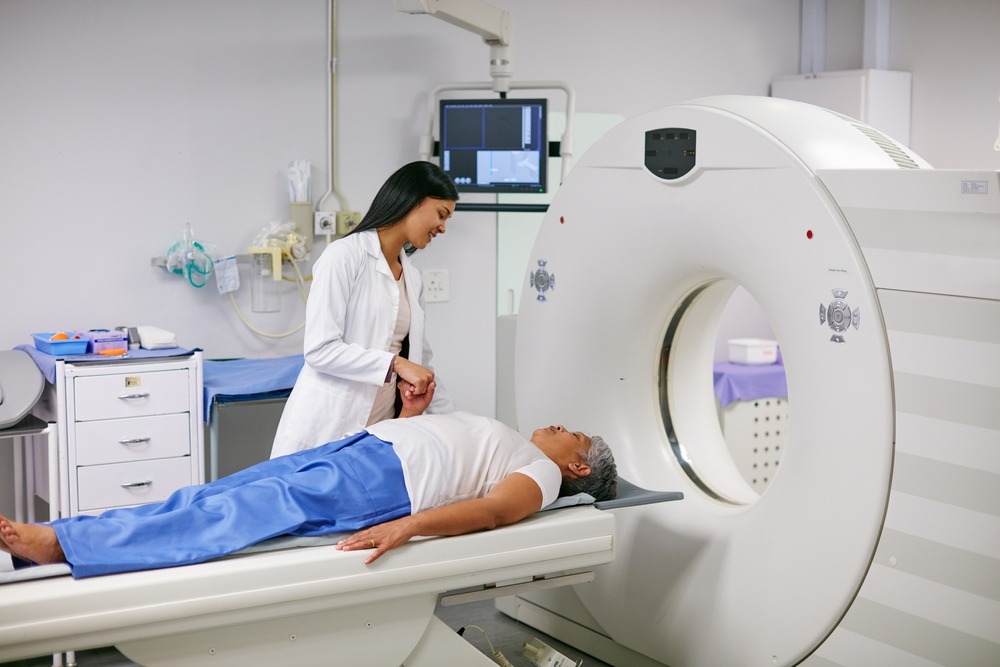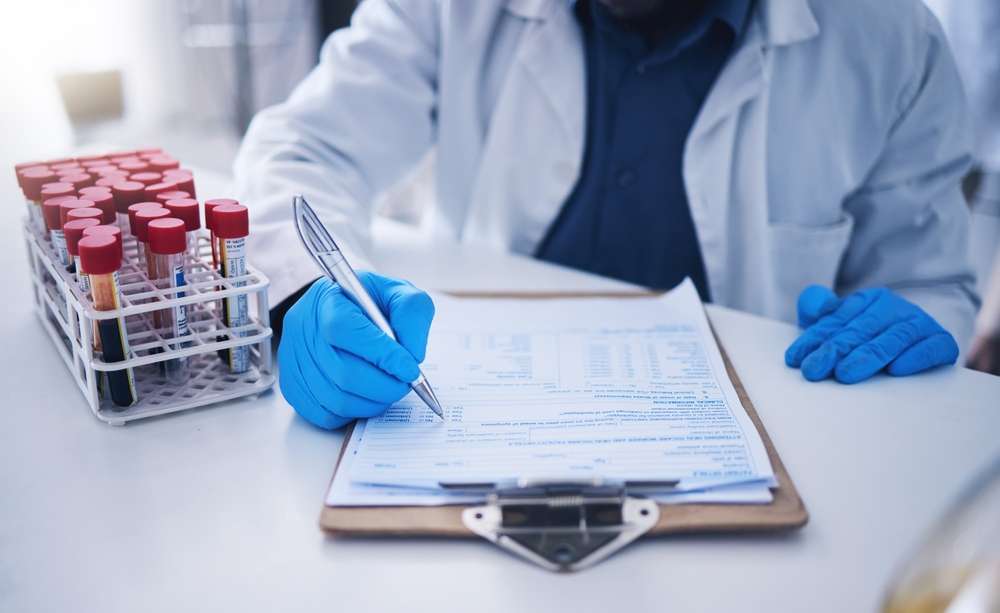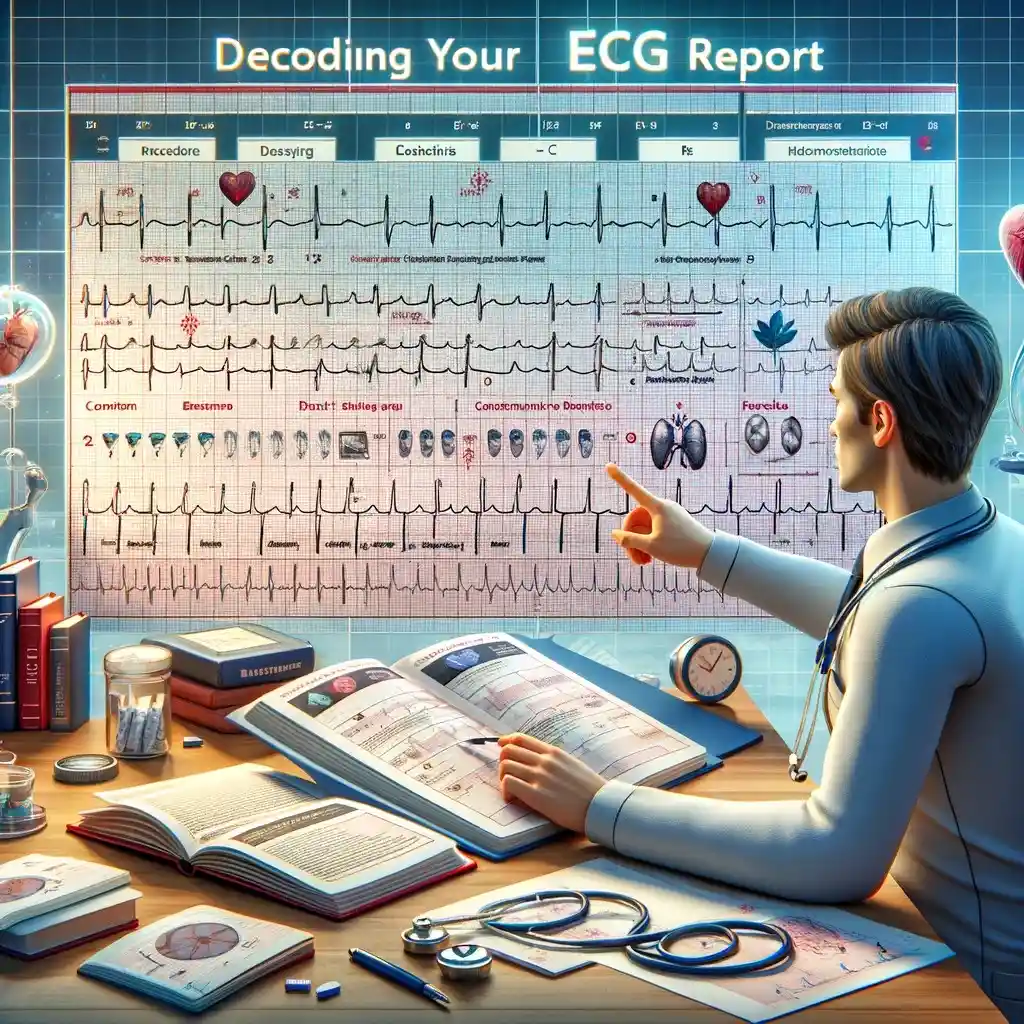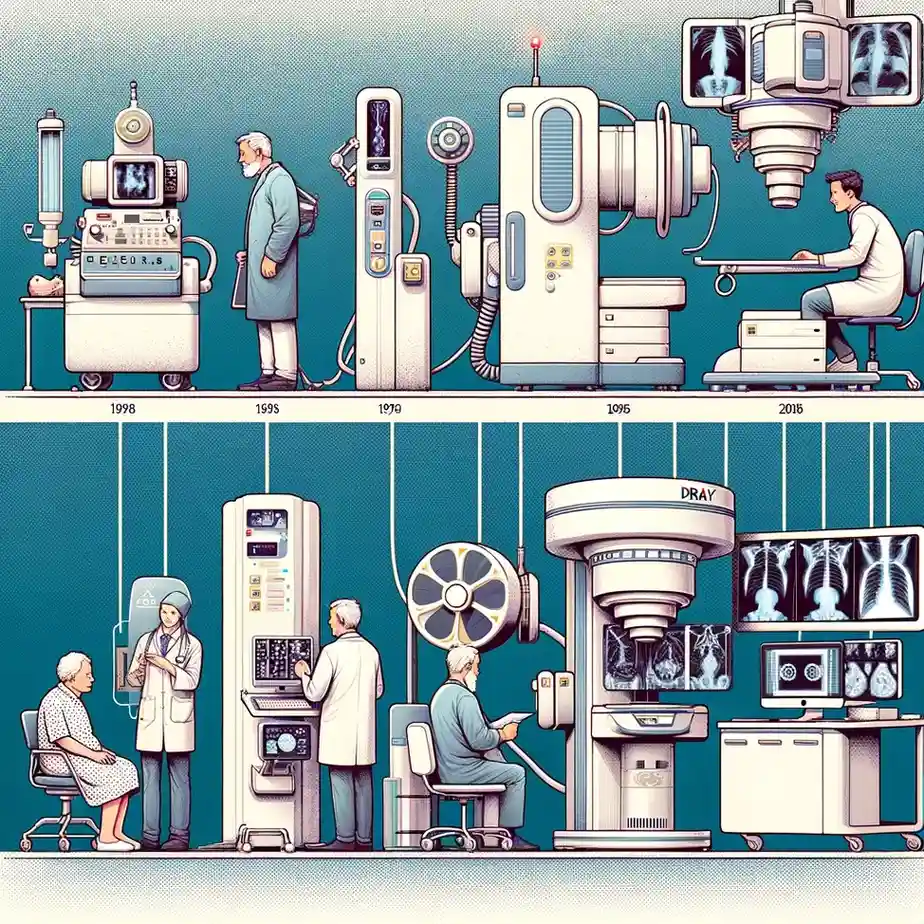Blood tests
A blood test is one of the significant tests performed to track different aspects of human well being. The blood test takes anywhere from a few minutes to hours and days to deliver the reports based on the type of blood test performed. Also, talk to your doctor if you are under ant medication while going for a blood test, as it helps in delivering accurate blood reports. A blood test is performed at high end sophisticated diagnostic centers for better and accurate results. Check some of the advanced blood test packages here at eco-health packages.
A blood test is performed to check:
- the functioning of specific organs like liver, kidney.
- To check an infection
- Screen the genetic conditions
- Deficiency or excess of specific vitamins, hormones, and nutrients in our body.
Thyroid profile
Thyroid profile is a collection of blood test performed to check the normal functioning of thyroid glands — the thyroid gland, which is a butterfly-shaped gland which is present in the lower-front of our neck.
Thyroid glands release hormones like Triiodothyronine(T3) and Thyroxine(T3), which help in the growth and development of the cells, metabolism, regulate the temperature of our body. The release of T3 and T4 is stimulated by Thyroid-stimulating hormone(TSH). Hence while examining for the proper functioning of thyroid, the quantity of T3, T4, and TSH are measured in our blood.
Thyroid Stimulating Hormone [TSH]: Pituitary glands release TSH to specify how much T4 and T3 should be released. If TSH level in your blood is high and the value of TSH is more than 0.4-4.0 milli-international units per liter, it indicates underactive thyroids or Hypothyroidism. Also, lower levels of TSH in your blood indicates Hyperthyroidism or overactive thyroid.
Thyroxine [T4]: T4 test, which is a blood test, helps the doctor to identify the problem associated with the thyroid. There are two types of T4 they are T4 and free-T4. TSH results, along with high levels of T4, indicate Hyperthyroidism and low levels of T4 indicate Hypothyroidism. An average adult T4 range from 5.0 to 2.0 micrograms per deciliter and healthy adults free-T4 levels range from 0.9 to 2.4 nanogram per deciliter.
Total Triiodothyronine [ total T3]: T3 is a hormone released by thyroid glands along with T4 to regulate your body temperature, heart rate, and metabolism of fats, proteins, and carbohydrates. Similar to T4, T3 has two types one which binds to a protein called T3 and the other is Free-T3. When your doctor thyroid dysfunction, he recommends for T3 test where both T3’s are examined in your blood. The usual range of T3 for normal functioning of thyroid is 100-200 nanograms of hormone per deciliter of blood(ng/dl).
Thyroid hormone-binding ration test(THBR): is a blood test that measures the uptake of T3 and T4 by Thyroid binding Globulin in a given serum sample(blood sample). Thyroid hormone-binding globulin is a protein responsible for carrying T3 and T4 in the blood. Increased thyroid hormone-binding ratio indicates that the patient has Hyperthyroidism, and low thyroid hormone-binding ratio indicates the presence of Hypothyroidism.
The tests mentioned above are the first test to determine thyroid-related disorders. However, in advanced cases, the doctor may advise scanning to identify nodules, Goiter, and Thyroiditis. It is good to inform your doctor if you are under any medication to get accurate results. Thyroid tests are done at well equipped and refined diagnostic labs. You can find a well-curated Thyroid profile test and complete health checkup for men and women of age above 20 years at Eco- Essential Health Check for Men and Eco- Essential Health Checkup for Women.
Diabetic screening
Diabetic screening is a series of blood test and urine tests performed to check whether you have diabetes or not and to check that glucose level in your blood is under control.
Fasting glucose(FPG): is a basic blood test performed to check the glucose level in your blood. It is performed in the empty stomach that is after an overnight fast. FPG level less than 100 milligrams per deciliter or mg/dl is considered normal, and FPG levels between 100 mg/dl to 125 mg/dl is considered weakened glucose level but not diabetic. The person with FPG levels more than 125 mg/dl is considered diabetic.
Postprandial blood glucose(PPBG): It is a blood test to check the amount of glucose in your blood usually after 2hours of having your breakfast. Glucose levels must-have gone down after 2hours of breakfast for a healthy person. A person who has diabetes has high levels of glucose in their blood even after 2 hours of their meals because a person with diabetes may not produce enough or respond correctly to insulin. For a non-diabetic person, PPBG level less than 140 mg/dl and for the diabetic person, it must be less than 180 mg/dl.
HbA1C or Hemoglobin A1c: It is a blood test which is used to measure average blood sugar levels for 3months. Hemoglobin is a protein in your blood which carries oxygen throughout your body. If the glucose in your blood is higher, it binds to hemoglobin and hemoglobin lives for about 3 months. Additionally, the test shows the average level of glucose in your blood for the past 3 months. For a healthy person, the HbA1c level is between 4% and 5.6%, and a person with HbA1c levels between 5.7% and 6.4% have higher chances of getting diabetic. So a person with HbA1c levels of 6.5% and higher have diabetes.
Oral glucose tolerance test or Oral GTT: It is a series of blood tests performed to diagnose diabetes mellitus, insulin resistance, pre-diabetes, and gestational diabetes in pregnant women. During GTT first, you are tested for fasting glucose levels in your blood. Later patient is asked to consume glucose drink, and their blood glucose is measured at intervals. For non-pregnant healthy person fasting blood sugar should be 60 to 100 mg/dl for 750 grams of OGTT used. Moreover, similarly blood sugar level after one hour should be less than 200 mg/dl, and after 2 hours, blood sugar levels should be less than 140 mg/dl.
A person with a GTT test level after 2 hours ranging between 140 and 200 mg/dl has impaired glucose tolerance or prediabetic. Also, a glucose level of 200 mg/dl or above is diabetic.
Random plasma glucose test: It is a blood test that is conducted at any time to measure glucose present in your blood. A plasma glucose test range higher than 200 mg/dl indicates that you have diabetes.
Doctors recommend the tests mentioned above, along with a urine sugar test for an accurate understanding of the condition of the patients. In an advanced diabetic condition where the patient has diabetes for years, doctors recommend cholesterol and kidney profile test to check diabetes is affecting your overall health. Find the best comprehensive diabetes checkup curated for men and women here. Also, remember the range specified for any blood test vary from laboratory to laboratory. So, it is always good to consult your doctor for a better understanding.
Liver Profile or Liver Function test
Liver function test is a series of blood test to determine the healthy functioning of your Liver. These tests measure levels of proteins, liver enzymes, and bilirubin in your blood. Doctor suggests liver function test
- To check if any infections such as hepatitis B and Hepatitis C have caused damage to the Liver.
- To monitor the diseases if a patient already has any liver diseases.
- For a heavily alcoholic person.
- If you have any gallbladder related diseases.
- Moreover, patients with diabetes, high blood pressure, and anemia are recommended to take liver function tests.
Alanine Transaminase(ALT) or Serum glutamic-pyruvic transaminase(SGPT) Test: It is a blood test performed to check liver damage or dysfunction of the Liver. ALT is an enzyme mostly present in the Liver which converts food into energy. Usually, ALT enzyme level in your blood is low, but if the Liver is damaged or not functioning ALT levels in your blood increase. ALT test range between 7 to 56 units per liter is considered normal.
Aspartate aminotransferase(AST) or Serum glutamic oxaloacetic transaminase(SGOT) test: AST is an enzyme in the Liver including muscles, ad heart. AST test is a blood test performed to check the levels of AST in your blood. It is usually recommended along with the ALT to check for liver damage or liver dysfunction. A high level of AST in your blood indicates damaged or defunctioning Liver. AST range between 5 to 40 units per liter serum is considered a healthy and proper functioning liver.
Alkaline Phosphatase(ALP) Test: It is a blood test to check the disorder in Liver and bone disease. ALP is recommended in combination with other tests. ALP is an enzyme present in Liver, bile duct and your bones. Hence the high level of ALP indicates disorder in Liver, blockage in the bile duct or bone disorder. ALP with other tests like AST, ALT, GGT, and 5’Nucleotidase helps to determine disease is in the Liver or bone. High ALP levels are usually seen in children undergoing growth and in pregnant women. ALP range between 44 and 147 international units per liter or 0.73 to 2.45 microkatal per liter.
Gamma Glutamyl Transferase(GGT) Test: It is a blood test that measures the amount of GTT in your blood. GTT is an enzyme that is present in the Liver, gallbladder, spleen, pancreas, and kidney. GTT is used with other tests to find the disorder of Liver or bone disorder. GTT is one of the actual tests for liver damage, which is mainly caused by the heavy use of alcohol. It is always important to fast for eight hours before the test and zero alcohol consumption within 24hours of the test. The normal range for the GTT test ranges between 9-48 units per liter(U/L).
Bilirubin test: It is a test that measures the amount of bilirubin in your blood. Breakdown of red blood cells leads to the formation of Bilirubin, which is excreted with the help of the Liver. Also, the higher level of Bilirubin indicates disorder in the Liver and can lead to Jaundice. The usual range of Bilirubin in blood for adults should be 1.2 milligrams per deciliter(mg/dl) and 1 mg/dl for children under 18years of age. The skin turns typically yellow after the bilirubin level reach between 2 and 3 mg/dl.
Protein – Total: It is a test performed to check the levels of proteins albumin and globulin, which are building blocks of cells and tissues in your blood. Proteins help enzymes and hormones which regulate our body. Total protein helps to determine nutritional status and any disorder in the Kidney and Liver. The normal range for total protein ranges between 6 to 8.3 grams per deciliter(g/dl).
Serum Albumin Test: is a blood test performed to check the performance of the Liver. Albumin is a protein produced by the Liver which nourishes the tissues, transports hormones, vitamins and stops fluids leakage out of your blood vessel. Reduced albumin in your blood indicates the dysfunction of the Liver. Albumin range between 3.5-5.0 grams per deciliter(g/dl) is the normal range.
Serum Globulin Test: It is a test to check the levels of globulin protein in your blood. Globulin is proteins produced by the Liver and immune system to fight against foreign substances. Globulin plays a vital role in liver functions, fighting against infections, and blood clotting. The usual range of globulin in the blood must be between 20 to 35grams per liter.
Serum Albumin/Globulin Ratio: Increase or decrease of albumin and globulin occur due to dysfunction or diseased Liver. The ratio is a measure which shows which serums concentration in blood is more indicating disorders in Liver.
The Liver is a crucial organ in your body. The Liver has to filter the blood before sending it to the rest of the body. It also detoxifies chemicals and metabolizes drugs. When the Liver is performing such a crucial function of our body, it becomes crucial for you to take care of it. You can protect your Liver with regular doctor visits and regular check-ups like eco-health check-up for women and many more.
Cholesterol Profile or Lipid profile Test
Lipid profile test is a blood test to determine the amount of Cholesterol, triglycerides in your blood. Cholesterol is fat, which helps to make the outer membrane of our body’s cells stable. There are two types of Cholesterol, one is Good Cholesterol(HDL) and the second is Bad Cholesterol(LDL). Increased levels of cholesterol and triglycerides in the blood will clog arteries, which leads to heart diseases. Hence the test helps to identify your risk of heart disease and helps to make lifestyle changes.
Total Cholesterol: It is a blood test to estimate the amount of Cholesterol in the blood. Total Cholesterol includes measuring both Good Cholesterol(High-density lipoprotein-HDL) and bad Cholesterol (Low-density lipoprotein-LDL). Total cholesterol of 200 milligrams per deciliter(mg/dl) or less is considered normal, total Cholesterol between 201 mg/dl to 240 mg/dl is borderline. And the total Cholesterol above 240 mg/dl is considered high.
HDL Cholesterol: It is also called Good Cholesterol or High-density lipoprotein. Higher levels of good cholesterol in your blood are better, which helps to lower the risk of heart disease. HDL collects excess bad Cholesterol from the blood takes it to the liver where they are broken down and removed from your body. The usual range of HDL in your blood should be 60 milligrams per deciliter(mg/dl) or higher.
LDL Cholesterol Test: LDL is a low-density lipoprotein, also known as Bad Cholesterol. High levels of LDL in blood deposits in your arteries and narrows the arteries. In arteries, blood carries oxygen to the heart, so with the narrowed arteries oxygen supply to heart depletes. Hence doctors highly recommend the LDL cholesterol test.
Non – HDL Cholesterol: It is a blood test to measure Non-HDL cholesterol. Non HDL cholesterol is obtained by subtracting HDL from the total Cholesterol. This test is preferred along with other cholesterol tests. People with high LDL levels are at risk of heart disease. However, in a few cases, heart attacks happen even who has normal LDL cholesterol. So doctors recommend a Non-HDL test for better understanding of heart disease. The non HDL cholesterol should be 30 mg/dl higher than LDL cholesterol according to guidelines of the federal cholesterol program. The LDL cholesterol of less than 100 mg/dl is healthy, LDL level between 130 mg/dl – 159 mg/dl is borderline, and LDL level between 160 mg/dl -189 mg/dl is high.
Triglycerides Test: They are also called lipids and are the primary source of fat in your body. Triglycerides are used to give energy to your body, and extra triglycerides are stored throughout your body. The fat stored in your hips or belly is Triglycerides. High triglycerides in your body will raise the risk of heart diseases. A blood test where triglycerides range is less than 150 mg/dl is standard, range between 150 mg/dl – 199 mg/dl is borderline, and range 200 m/dl to 499 mg/dl is high.
VLDL Cholesterol Test: It is a blood test to measure the amount of VLDL cholesterol in arteries. VLDL is a very low-density lipoprotein Cholesterol and one of the harmful forms of Cholesterol. High levels of Cholesterol will clog your arteries and lead to a heart attack. The range of VLDL cholesterol between 2 mg/dl to 30 mg/dl is normal.
TC / HDL Cholesterol Ratio Test: It is the ratio between Total Cholesterol and High-density lipoprotein(Good Cholesterol) in the blood. This test helps to find out the risk of coronary heart disease and stroke. Higher the ratio between TC and HDL indicates higher the risk of heart disease, and the lower the ratio between TC and HDL indicate a lower risk of a heart attack.
LDL / HDL Ratio Test: It is a test performed to check the ratio between High-density lipoprotein and Low-density lipoprotein.
It is always recommended to perform cholesterol tests after fasting for 14 hours before the blood is drawn that is first in the morning and empty stomach. The doctors also recommend not to consume alcohol before 48 hours of the test. It becomes compulsory to keep a regular track of our health, especially for cholesterol and heart diseases. Hence any person above 20 years of age must undergo a cholesterol checkup every 5 years once, and an adult above 45 years must do a cholesterol profile test once a year. Along with lipid profile get checked for other disorders with tests such a liver profile, diabetes checkup at Eco health packages which are comprehensively designed to cater to all your needs.
Kidney Profile Test
Kidney profile test is a series of tests conducted to check the normal functioning of the kidney. The kidney is considered healthy when it removes wastes and excess fluids from the blood. Blood test, along with urine test and Ultrasound or CT scan, can help to determine dysfunctioning kidney.
Serum Creatinine Test: It is a blood test to measure the levels of Creatinine in the blood. The waste product that comes from the usual wear and tear of muscles is called Creatinine. Increased levels of Creatinine in blood indicates that the kidney is not working correctly. The typical range of Creatinine in blood for men is 0.7 to 1.2 mg/dl and for women is 0.5 to 1.0 mg/dl.
Blood Urea Nitrogen(BUN): It is a blood test to measure urea nitrogen in your blood. The Liver produces urea nitrogen as a waste product of digestion into the blood. The kidney removes urea nitrogen from the blood. Increased BUN in blood indicates that your kidney is not functioning normally. The normal range for BUN in your blood should be between 7 to 20mg/dl.
Uric Acid Test: The presence of uric acid in the blood is tested, which helps to determine how much uric acid is produced and removed from your body. Uric acid is a chemical produced when food in your body is broken down to purines. Increased uric acid leads to the formation of kidney stones and a collection of uric acid crystals in your joints, toes, and fingers.
The main reason for increased uric acid is kidney not able to eliminate uric acid from your blood. The uric acid levels between 2.4 -6.0 mg/dl (female) and 3.4-7.0mg/dl (male) is considered normal. It is advised not to consume alcohol before the test as it increases uric acid concentration in your blood.
Sodium(Na): It is a blood test performed to measure the levels of sodium in your blood. Sodium is an electrolyte that helps to maintain fluid levels in your body and helps nerves and muscles to work correctly. High or low levels of sodium in your blood indicate a dysfunctioning kidney. The average sodium level in your blood should be between 135 (mEq/L) – 145(mEq/l).
Potassium(K) Test: It is a blood test performed to check levels of potassium in the blood. This test is suggested in the electrolyte panel test. This test is used to determine conditions related to kidney diseases, high blood pressure, and heart diseases. The average potassium level in your blood should be between 3.6 to 5.2 millimoles per liter(mmol/L).
Chloride(Cl) Test: It is a blood test to determine the amount of Chloride, an electrolyte in your blood. Chloride helps to maintain the fluid inside and outside of blood. Also, it maintains blood volume, blood pressure, and pH of body fluids. The doctors suggest a chloride test to check kidney disease, heart failure, liver failure, and nutritional issues. The range between 98 and 106 milliequivalents per liter(mEq/L) is standard.
Glomerular filtration rate(GFR): It is a blood test to check how much blood your kidney filters in a minute. The GRF range between 90 to 120 mL/min/1.73 m^2 is considered normal. Aged people have GFR levels lower than the normal range.
BUN / Serum Creatinine Ratio: It is a ratio between levels of blood urea nitrogen and serum creatinine in the blood. The typical ratio of BUN to Creatinine should be between 10:1 AND 20:1. The increased ratio is due to the decreased supply of blood to the kidney.
The kidney is one of the essential organs of our body, which helps to filter the blood and helps to excrete the waste as urine. Hence normal functioning of the kidney is essential. So it is crucial to undergo detailed checkup like Eco- Delight Master Health Check Package For Men and Eco-Delight Master Health Check up Package for women.
CBC or Hemogram
CBC stands for a complete blood test where a group of tests is performed on the blood sample to determine the overall health of a person. Blood is life maintaining fluid, which helps in transporting oxygen and nutrients and prevents excess blood loss. Also, blood carries antibodies, regulates body temperature, and helps to remove waste from our body. The main component of blood includes plasma, red blood cells, white blood cells, and platelets. CBC test includes testing these components of blood.
Red blood cell count Test: It is a blood test performed to determine the number of red blood cells in your blood. Red blood cells are also called erythrocytes. The usual range of RBC in your blood should be between 4.2 to 5.9 million cells/cmm.
Hemoglobin Test: It is a blood test to measure the levels of hemoglobin in your blood. Hemoglobin is a protein in our blood or RBC. The Hemoglobin range lesser than the normal range indicate low levels of RBC and leads to anemia. The normal hemoglobin range in for men should be 13.5 to 17.5 grams per deciliter, and for women, it is between 12.0 to 15.5 grams per deciliter.
Hematocrit test: Blood contains red blood cells, white blood cells, platelets, and plasma. Hematocrit is a blood test to find out how much of your blood is made of Red Blood Cells in your blood. Increased or decreased level of hematocrit indicate a blood disorder or dehydration or anemia or polycythemia or other medical conditions. Doctor recommend hematocrit test as a regular checkup or if you have anemia or polycythemia. The normal range of hematocrit for men is 45% to 52% for men and 37% to 48% for women.
Platelet count: Platelet is a blood cell which helps to form clots when bleeding occurs. Platelet count test measures the number of platelets in your blood. The normal range of platelets in the blood ranges between 150,000 to 450,000 platelets per microliter of blood. The increased platelet count indicates a condition called thrombocytosis, where spontaneous blood clot occurs. Also, decreased platelet count indicates thrombocytopenia, which includes symptoms such as easy bruising, frequent bleeding from the nose, gums, or GI tract.
White blood cell count(Leucocyte): It is a blood test to measure the number of white blood cells in your blood. WBC are the cells of the immune system, which helps in protecting our body against infectious disease and foreign invaders. The decreased WBC results in leukopenia and increased WBC indicate a condition called Leukocytosis. The normal range of WBC in the blood is between 4000 to 11,000 per microfilter of blood.
Absolute Neutrophil Count(ANC): Neutrophil is a type of white blood cells which fights against infections. ANC is a blood test performed to measure the number of neutrophil granulocytes in the blood. The normal range of ANC should be between 1.5 to 8.0(1,500 to 8000/mm3).
Absolute Lymphocyte Count(ALC): Lymphocyte is a type of white blood cells which are made in one marrow and lymph tissue. The normal range of lymphocyte in adults ranges between 3000 and 9500 lymphocytes in 1 L of blood.
Absolute Monocyte Count(AMC): Monocyte is the most prominent white blood cells in the immune system. AMC is a blood test to measure the number of monocytes in the blood.
Absolute Basophil Count: Basophil is also a type of white blood cells and plays a vital role in the immune system. Absolute basophils. count ranges between 0 to 0.3 cubic millimeters(k/ul).
Absolute Eosinophil Count: Eosinophil is a type of white blood cell, and Absolute Eosinophil count is a measure of eosinophil in the blood. An eosinophil is active when you have allergic diseases, infections, and any other medical conditions. The normal range of absolute eosinophil is between 30 to 350 per microliter of blood.
Mean Corpuscular Volume (MCV): There are three main corpuscles red blood cells, white blood cells, and platelets. MCV is the average volume of red blood cells in the blood. The range between 80 and 96 femtoliters per cell is the normal range of MCV.
Mean Corpuscular Haemoglobin(MCH): it is the average mass of hemoglobin per red blood cell in the blood. MCH is recommended, along with a complete blood count test. The normal range of MCH for an adult ranges between 27 to 33 picograms(pg) per cell.
Mean Corpuscular Haemoglobin Concentration (MCHC): It is a measurement of the amount of hemoglobin in one red blood cells. Also, it is an average amount of hemoglobin in the blood. The normal range of MCHC in an adult is 33.4 to 35.5 grams per deciliter(g/dL).
Mean Platelet Volume (MPV): it is a measure of the average size of platelets in the blood. MPV test is recommended along with other complete blood count tests. The normal platelet volume in blood ranges between 9.4-12.3 fL, which is equivalent to spheres 2.65 to 2.9 min diameter.
Red Cell Distribution Width: It is a measure of red blood cell variation in volume and size. The normal range of RDW for a female adult ranges between 12.2 to 16.1 percent and in male adults it ranges between 11.8 to 14.5 percent.
Erythrocyte Sedimentation Rate (ESR): It is a blood test to measure how quickly red blood cells(erythrocytes) settle at the bottom of the test tube, which has a sample of blood. The increased range of ESR indicates inflammation in the body. The normal range of ESR in women under age 50 should be between 0 to 20 mm/hr and for men under age 50 should be between 0 and 15 mm/hr.
Blood is the main component of our body, which requires time to time examining for your overall health benefits. Hence ask your doctor for advanced complete blood test like Eco- Prestige Master Health Check Package For Men also check some of the sophisticated checkups here.
A urine test or Urinalysis
Urine test is a series of tests performed on the sample of urine collected. Doctors recommend a urine test or Urinalysis as part of a routine checkup. Also, a urine test is recommended to determine illness such as kidney disease, liver disease, and diabetes.
Glucose- Fasting urine sugar/glucose test: It is a urine test usually recommended to determine if a patient has diabetes or to check levels of glucose in diabetic patients. The normal glucose level in the nondiabetic range between 70 to 99 mg/dL.
Postprandial urine sugar test: It is a urine test performed after 2 hours of food consumption for glucose levels in urine. Urine tests for diabetes are prescribed, along with other diabetic tests.
Microalbumin urine test: Microalbumin is a protein in the urine. Microalbumin is present in urine only if kidneys are damaged due to diabetes or any other kind of illness or kidney dysfunctions. The microalbumin of less than 30 mg is normal. Microalbumin urine test is recommended for diabetic and kidney disorder patients.
Bilirubin Urine test: Bilirubin is an orange-yellow substance formed during the breakdown of red blood cells. Bilirubin is excreted out of the body with the help of the Liver. Abnormal levels of bilirubin indicate a liver disorder.
Blood in a urine test: Urine is tested for the presence of blood in it. Presence of blood in urine indicate infection or illness.
White blood cells urine test: Urine is tested for the presence of any WBC. WBC occur in urine if there are signs of infection or dysfunction in the kidney.
Ultrasound scanning
Ultrasound is a method in which images of internal parts of your body is generated using high-frequency sound waves. Ultrasound scan is used to monitor pregnancy, diagnose parts of our body, or certain conditions. Ultrasound is done at an experienced diagnostic center. Moreover, you can get your condition diagnosed by one of the advanced ultrasound scan diagnostic centers HERE.
X-ray
It is an imaging technique where a small amount of radiation is used to generate images of the inside of your body. X-ray helps to diagnose injuries, and treat several medical conditions. There are different types of X-rays to diagnose different conditions like mammogram to examine breasts and barium enema for gastrointestinal tract examination. These examinations are to have opted from advanced X-ray diagnostic center -Ecotown diagnostics.
For advanced and sophisticated diagnostic service visit Ecotown Diagnostic centre .








